Summertime calls for refreshing fruits that provide a jolt of energy. What better summer fruit than the ones approved by the heavenly pantheons?
Whether it’s wine, the blood of the divine, or the healthy version of sour patch kids, there is no other fruit that can beat grape’s versatility.
However, common sense tells us that birds can’t consume wine or sour candies – can grapes be the exception?
In this article, we will discuss everything you need to know about grapes before adding them to your bird’s diet!
Are Grapes Safe for Bird Consumption?
In what world can fruit be unsafe for birds when it’s part of their natural diet – a question that may circulate your mind throughout this section. Hence, I’m putting this to rest before we begin exploring the safety and risks.
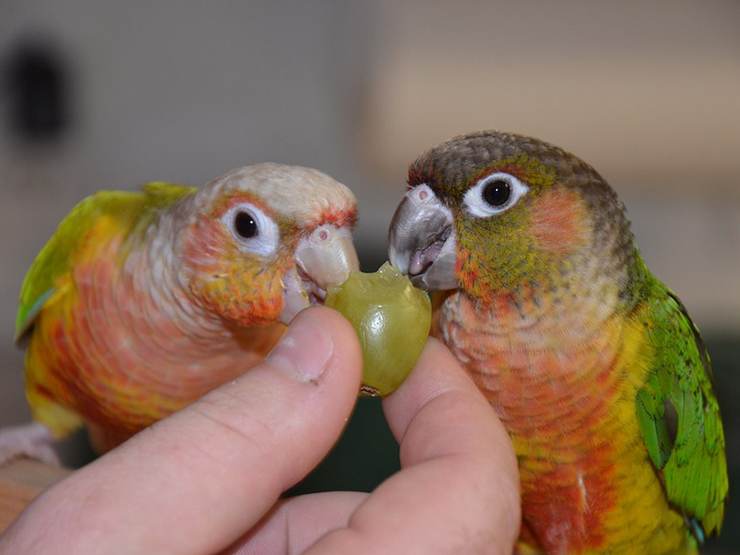
Remember the cardinal rule when it comes to bird diet? Avocados are one of the most toxic foods you can introduce into your bird’s diet, along with chocolate made of cacao beans.
If two of the most consumed fruits in the world can be toxic to birds – can grapes be redeemed safe? Let’s find out!
Although known for their mouth-watering sourness, grapes are high in fructose. Their fructose content may attribute as a side effect, but this is true for all fruits.
Does that make grapes bad for your bird? Not at all.
One thing to note when adding fruits to your bird’s diet is to ensure it is consumed in moderation.

Fruits with high fructose content have been known to cause diarrhea due to overconsumption. As for grapes only, they contain salicylic acid, notorious for causing upset stomachs, nausea, and diarrhea.
If consumed in moderation, grapes offer wondrous benefits that will be discussed in the next section.
What Are the Benefits Grape Can Offer in Your Bird’s Diet?
Grapes are enjoyed as a summer refreshment and are not to be forgotten, the poignant wines. Civilizations through civilizations, there has been no better way to cultivate wine other than grapes.
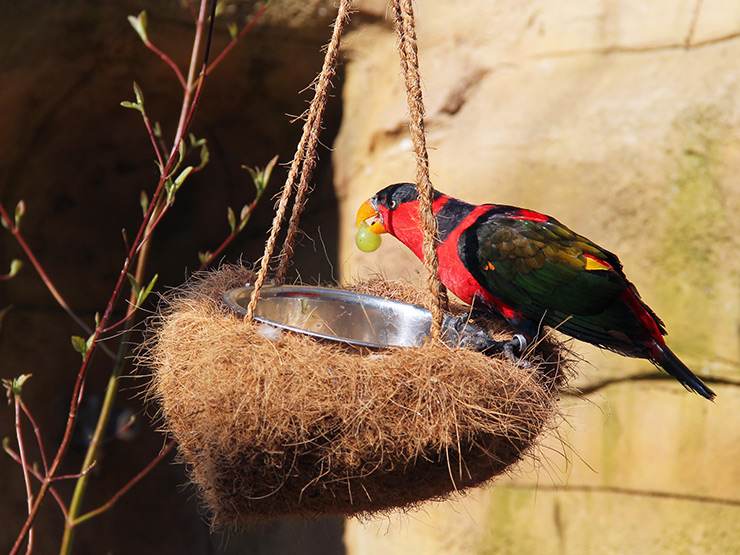
It forces oneself to think about what tremendous benefits they withhold. Well, look no further, as this section will dissect all the benefits there are to knowing about grapes.
1. High in Antioxidants
Grapes are packed with many powerful antioxidants. Antioxidants are compounds that help repair and protect against cell damage caused by free radicals. The highest concentration of antioxidants in grapes is found in the skin and seeds.
Here’s a list of antioxidants found in grapes and their functions:
- Anthocyanins
- Resveratrol
- Quercetin
- Vitamin C
- Beta carotene
Anthocyanins – possess antidiabetic, anticancer, anti-inflammatory, antimicrobial, and anti-obesity effects, along with the prevention of cardiovascular diseases.
However, moderate consumption is strongly advised as an overload of anthocyanins can lead to damaging kidneys.
Resveratrol – has antioxidant and anti-inflammatory properties that make it a good remedy for arthritis and skin inflammation.
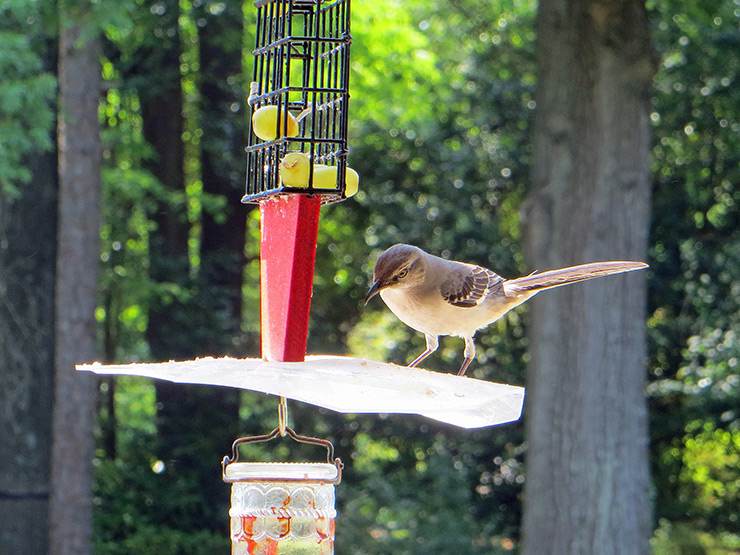
Quercetin – can help stabilize the cells that release histamine in the body and thereby have an anti-inflammatory and antihistamine effect.
Vitamin C – Most antioxidants go amiss but if there is one nutrient grape is loved for, it’s vitamin C. Vitamin C has anti-inflammatory effects that aid in diseases like feather cysts during preening seasons.
Beta Carotene – converts to vitamin A (retinol) to aid good vision and eye health, a strong immune system, and healthy skin and mucous membranes.
Phew! That seemed like a never-ending list of antioxidants for such a tiny fruit.
2. Good Source of Vitamins
Got excited over the oh-so-many antioxidants that grapes offer? Wait till you hear about the vitamins!
Grapes provide a perfect balance of vitamins and can easily satisfy your bird’s RDI for the Vitamin complex from only a handful.
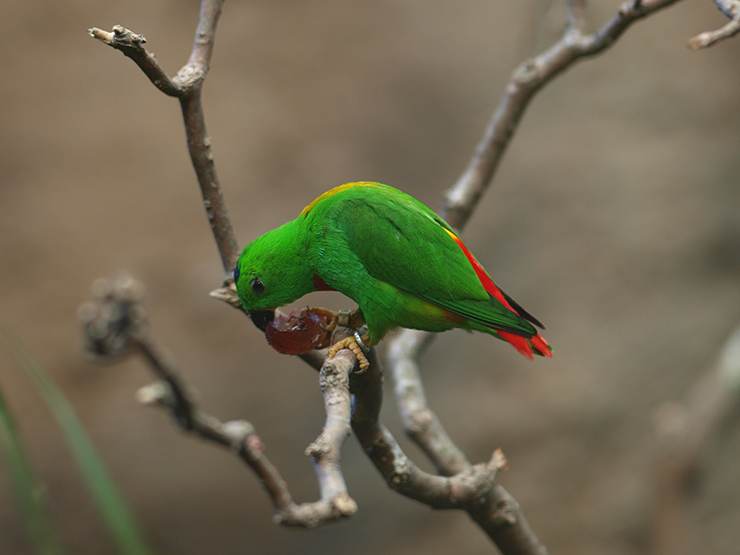
Here’s a list of all the vitamins your birds will receive if you add grapes to their diet:
- Vitamin K
- Vitamin B1
- Vitamin B2
- Vitamin E
Vitamin K – initially vitamin K was known only for its ability to strengthen bones and assist with blood clotting.
However recent studies have shown that Vitamin K also protects cognitive ability and acts as an antioxidant that could be key in preventing Alzheimer’s Disease. Only a cup of grapes provides 18% of DV for Vitamin K.
Vitamin B1 – is required by the body for energy metabolism and cell growth, function, and development. Each cup of grapes supplies 9% of the DV.
Vitamin B2 – is a key component for the growth of cells, energy production, and the breakdown of fats.
Vitamin B6 – is important for normal brain development and for keeping the nervous system and immune systems healthy.
Vitamin E – helps maintain healthy skin and eyes, and strengthens the body’s natural defense against illness and infection (the immune system).
3. Provides the Required Balance of Fiber and Protein
If you’ve been a bird enthusiast for a while now, you are aware of the importance of a proper balance of fiber and protein in a bird’s diet.
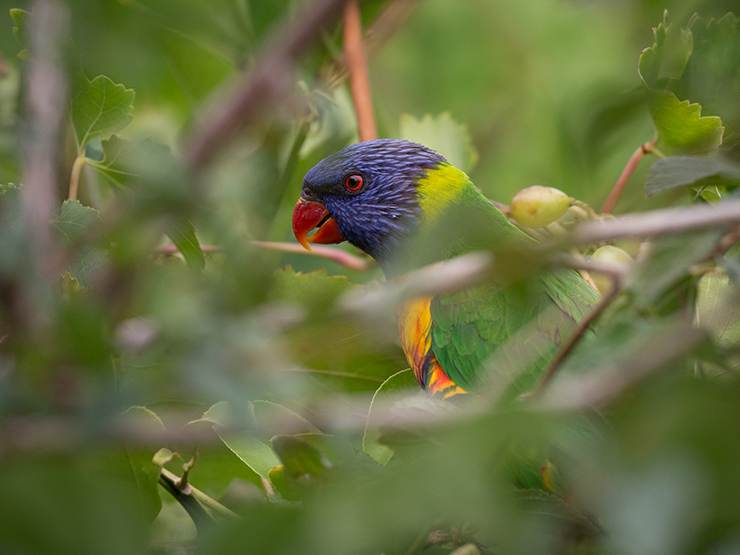
When choosing a treat for your bird it’s essential to look for treats that provide to the diet instead of taken away. Treats like crackers or bread cause more harm than good.
Hence, grapes are perfect as each cup of grapes supplies 1.4g of fiber and 1g of protein.
Besides all these nutrients, grapes also add magnesium and copper to your bird’s diet.
Here’s why these nutrients are vital to your bird’s diet:
- Magnesium is required to carry out a range of functions of the body, such as maintaining the proper function of muscles and nerves, levels of blood sugar and blood pressure, and making protein, bone, and DNA.
- Copper is vital for iron absorption and maintaining healthy bones, blood vessels, nerves, and immune function.
Grapes might just be the holy grail of fruits, don’t you think? It offers every nutrient your bird requires from their regular diet. With that sweet and sour goodness that accompanies all these nutrients, how can it not be perfect?
How to Add Grapes to Your Bird’s Diet?
Now it’s given that birds can eat grapes as is, but the leathery skin of grapes tends to make it hard to peck through.
One method is to chop the grapes into chunks, and the next is to just peel the skins off. However, that comes with its own set of problems.
The skin of grapes contains the most antioxidants and fiber. Ultimately it all depends on whether you provide the snack for nutrition as well as the yumminess or just for the latter.
Frequently Asked Questions
As bird parents, we want to ensure every aspect of food is safe for our birdies. Hence, it’s natural to have queries.
In this section, I will make sure there are no doubts left about adding grapes to your bird’s diet.
Can Birds Eat Grapes With Seeds?
Seeds of grapes contain most of the antioxidants, and both the skin and seeds contain the highest amount of fiber.
Hence, it’s safe for birds with stronger beaks to eat grapes with the seeds. However, birds with smaller or weak beaks may be at risk of choking due to the seeds (if they are large).
Can Birds Eat Candy Grapes?
Grapes, in general, are high in fructose levels, and candying on top of them is not only harmful to birds but humans too. Even humans face difficulties in metabolizing sugar overload. Imagine how damaging it will be to birds.
Most grape candies are made of nothing, but chemical grape flavorings, which are more harmful than the sugar content itself.
Can Baby Birds Eat Grapes?
If you have a pet bird who just had some babies, chances are it will be them crushing the grapes for the hatchlings to feast on.
If, however, it’s a rescue baby bird or an abandoned one, you have to take matters into your hand. Baby birds cannot feed themselves; hence, you have to mash the flesh of the grapes into a pulp and feed them.
Besides this minor setback, grapes are safe for baby birds to consume only in moderation.
Can Birds Eat Green Grapes?
Grapes of all varieties are safe birds to consume, including green grapes. Their usual tartness sets them apart from the other varieties, making them a crowd favorite.
However, the nutritional content in them varies from variety to variety.
Can Wild Birds Eat Grapes?
Wild birds can often be seen enjoying a bite of this refreshing summer fruit from the vineyards.
It is safe for them to eat if only consumed in moderation.
Can Birds Eat Grape Jelly?
Primarily grape jelly is grape reduction. However, store-bought grape jellies are high in preservatives and sugar, making them unsafe for birds to consume.
Fresh grapes are best in terms of safety and nutrition.
Can Birds Eat Dried Grapes?
Dried grapes are the next best option to fresh grapes if fresh grapes are not available where you live.
However, I wouldn’t suggest dried grapes over fresh ones if possible, as birds already have a diet that is on the drier side, like seeds. Sometimes a juicy bite of a grape is all they need.
Can Birds Eat Grape Tanghulu?
Grape tanghulu is a Korean treat that translates into candied grapes. Although tanghulu is made of organic grapes, the glass-like sugar coating on the outside remains harmful for your birds and even poses the risk of cutting the insides of your bird’s mouth.
It’s best to feed your birds grapes as is to avoid putting their health at risk.
Final Remarks
It’s rare to have fruits provide a balanced diet, especially for fruit so tiny as grapes. As you can see from the nutrients and their benefits listed above, grapes provide the best of all worlds.
They’re packed with protein and fiber; along with a plethora of micronutrients. What more does a bird’s diet require?
If I were you, I’d be rushing to the grocery store to buy a pack of grapes for my family and feathered friends!
Don’t forget that consumption in moderation is strongly advised along with making sure there are no grape allergies involved by checking in with your vet.